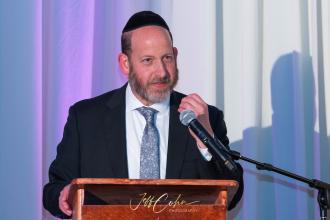President Rivlin:
“I am happy that Beit HaNasi can help so many people. We need each other; the people of Israel are a people of mutual responsibility. This is the value that will lead us out of this crisis.”
President Reuven (Ruvi) Rivlin today, Sunday 9 August / 19 Av, spoke on the telephone with people who have requested help via the coronavirus hotline opened about a month ago by Beit HaNasi. Among others, the president spoke with a PTSD patient who needed help renewing his medical cannabis license; with Yahli, a young person who asked for the president’s help in keeping the youth movements running as normal; and with Eldad, who is self-employed in the field of business development, who asked for help in receiving the coronavirus grant he is entitled to.
Throughout the year, Beit HaNasi is the house of the people and a place to turn to in times of crisis and when needing help, but in light of the coronavirus pandemic, the activity of its public helpline has been increased in order to give advice to citizens who are encountering problems at this time. Since the helpline was opened, there has been a rise of hundreds of percent in inquiries to Beit HaNasi and a larger than normal staff deals with inquiries every day.
Most of the inquiries are related to dealing with the bureaucracy of government ministries, ensuring grants are paid, clarification relating to foreign nursing workers, connection to organizations providing food parcels and help and assistance in other inquiries.
The president spoke to Eldad, who needed help with the Tax Authority to receive approval for a grant. The helpline was able to help and he received the money quickly. Speaking to Eldad, the president said that the coronavirus crisis is also a socio-economic issue. “Self-employed people in Israel are dedicated and innovative people who love to work. They are generally those who give, not those who need to receive. At this difficult time, the State of Israel has an obligation to support those in real economic hardship. It is also an obligation we all have – to support each other, to be there for one another. To try and shop locally and to buy Israeli produce.”
Eldad thanked the president for calling, and said “You are doing something very important, I must admit. You managed to do something that I could not get done for four months. I ran into a huge amount of problems and got service about which I was skeptical to start with. But as soon as I filled in the forms, I got an answer within 24 hours and the issue was resolved in three days. It surprised me and I am so happy that you managed to help people like me who run small businesses. I was so moved by the response and the way it was handled. Thank you.”
The president spoke to Yahli Braun, a tenth-grader who is involved in the Israeli Scouts branch in Herzliya. Yahli asked the president to intervene in ensuring the Scouts would be able to continue activities following the government’s decision to freeze funding for youth movements. The president told Yahli that he had spoken about youth movement budgets to the head of the budget department at the ministry of finance, Shaul Meridor, who promised that these funds would be transferred and that none of the youth movements’ activities would be harmed. Yahli thanked the president with great enthusiasm, and the president said, “You really don’t need to thank me. I also grew up in the Scouts, with the motto ‘Be Prepared’, and this is the right thing to do.”
“I was in the Masada scout troop in Jerusalem,” the president told Yahli, “and the time we spent together in activities, with our friends, in nature, were a defining feature of my youth. At a time when young people are used to others doing things for them, youth movement members get up and take charge. They learn how to be thinking and active citizens. I am glad that the government has seen fit to transfer some of the funds allocated to the Scouts, and hope that no troop will close because of the coronavirus crisis. Not in the center of the country, and not in the outlying areas.”















